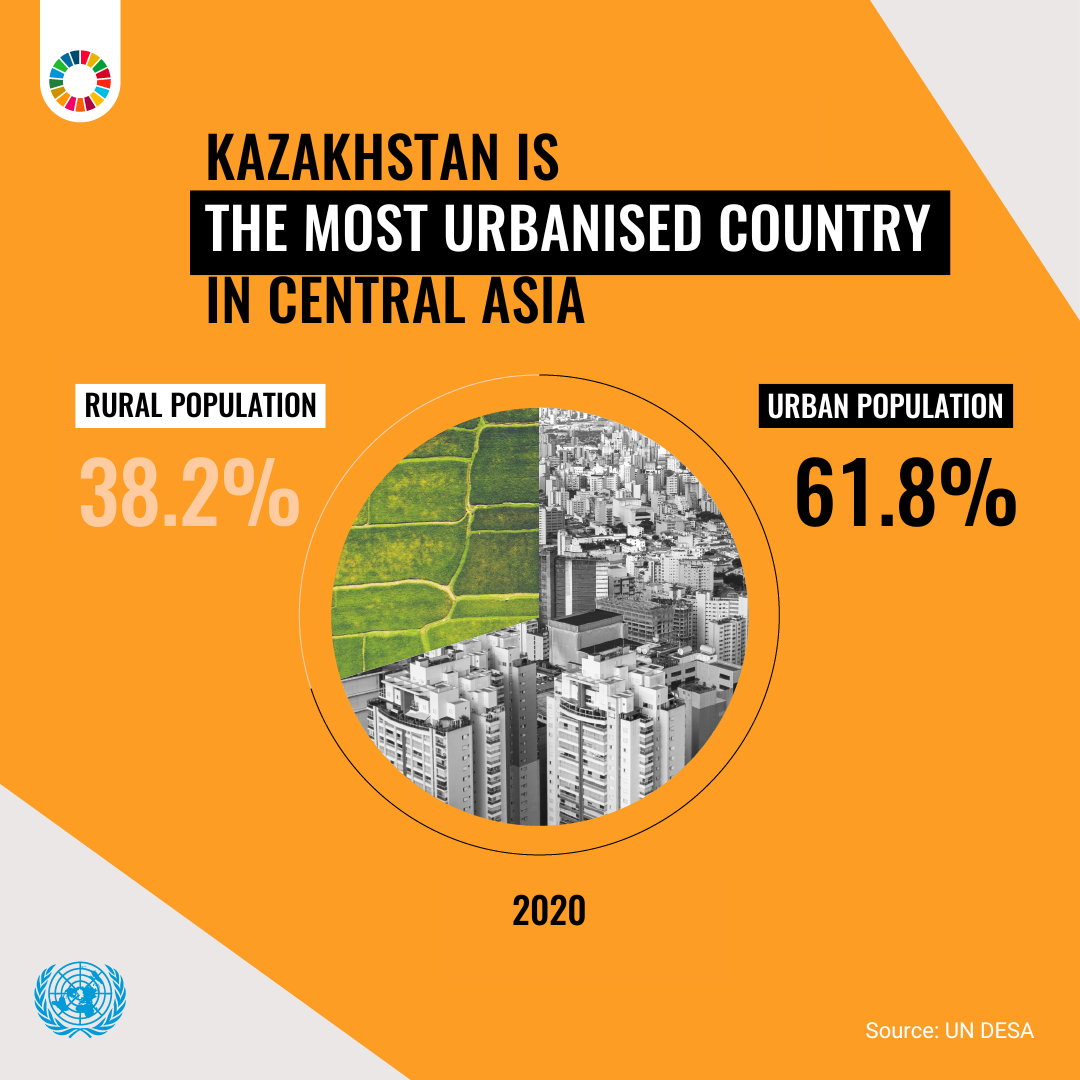ASTANA – A briefing took place on Sept. 12 in Astana to evaluate Kazakhstan’s progress in fulfilling its commitment to the 2030 Sustainable Development Agenda led by the United Nations (UN). This event served as preparation for the upcoming Sustainable Development Goals (SDG) Summit in New York next week.
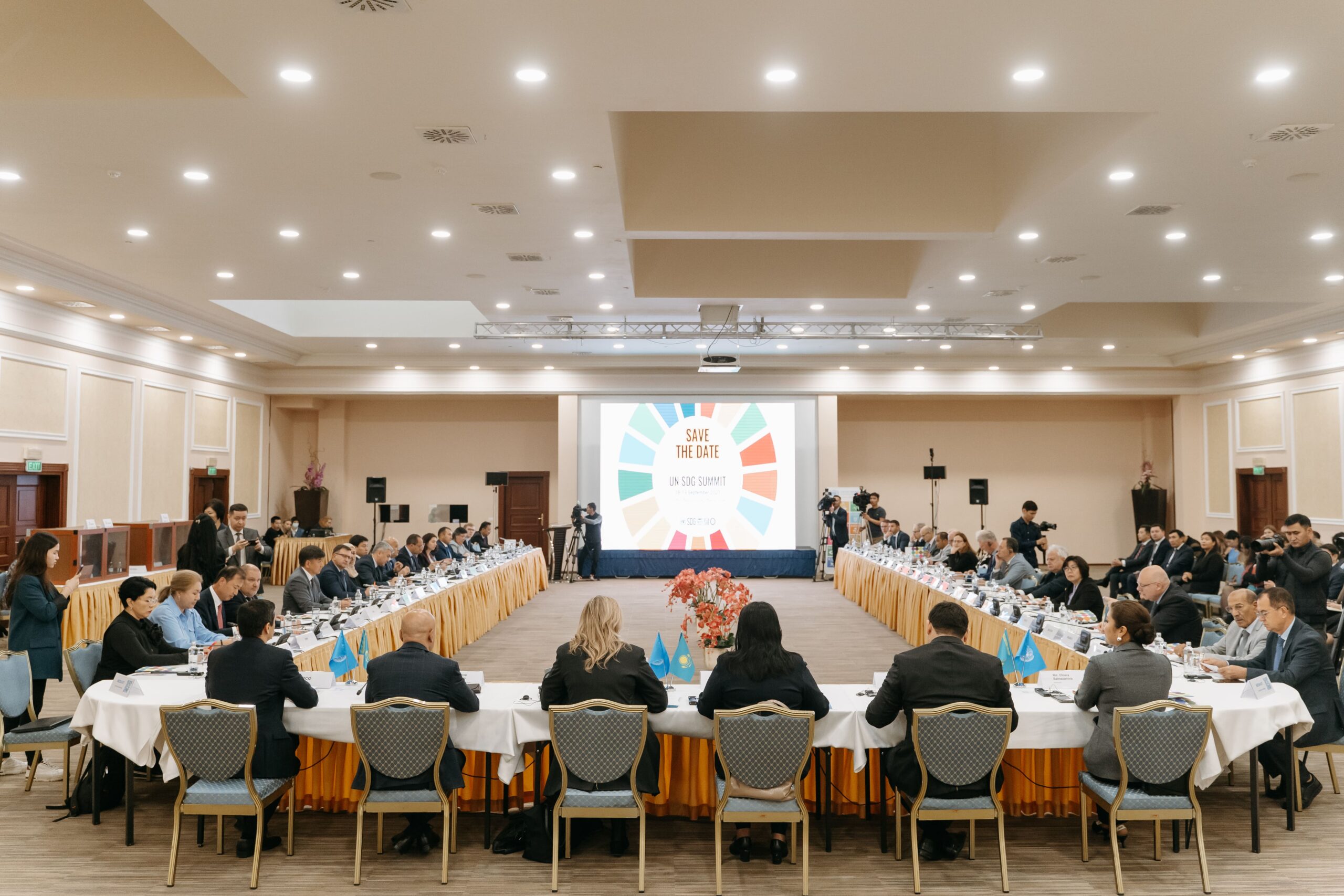
The 2023 SDG Summit is scheduled for Sept. 18-19 in New York. Photo credit: UN in Kazakhstan.
Organized by the UN Office in Kazakhstan, the event attracted nearly 50 representatives from the government and diplomatic missions. The 2023 SDG Summit is scheduled for Sept. 18-19 in New York and will be the centerpiece of the high-level week of the General Assembly.
“We are now at the halfway point. It is a challenge for us to make sure that we get there in the next 7.5 years. In order to reignite and re-energize this work, the world leaders are meeting next week in New York to come together and make sure that we leave no one behind as we move forward,” UN Resident Coordinator for Kazakhstan, Michaela Friberg-Storey, told journalists before opening the event.
Adopted in 2015, the SDGs set forth a global mission to realize the 2030 Agenda, aiming to foster prosperity, tackle inequalities, and protect the environment. Comprising 17 goals, the SDGs provide a comprehensive framework for addressing poverty, violent conflicts, human rights violations, climate change, and environmental degradation.
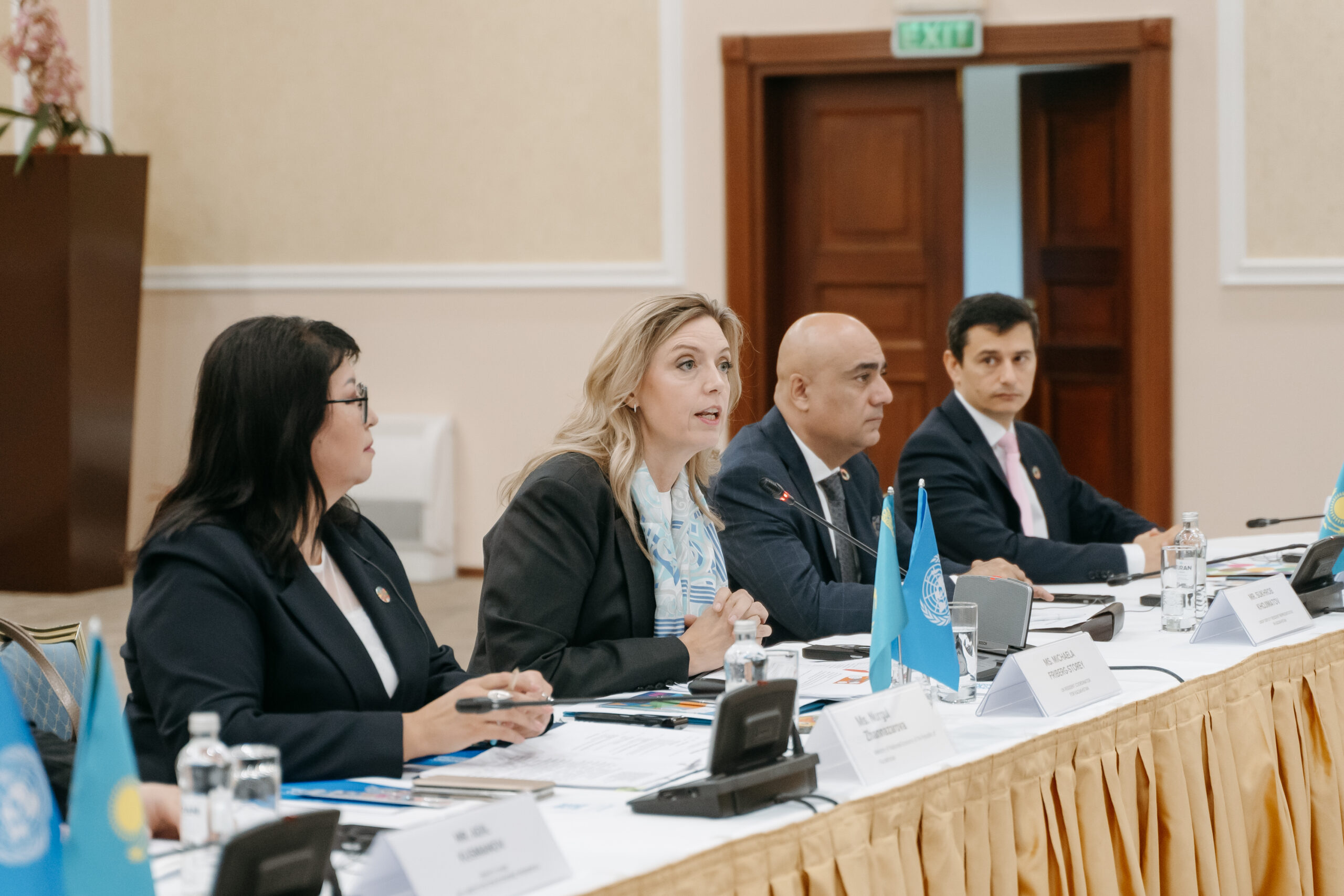
From L to R: Nurgul Zhannazarova, director of the Department of Social Policy and Development of State Bodies at Ministry of National Economy, UN Resident Coordinator Michaela Friberg-Storey, UNDP Deputy Resident Representative Sukhrob Khojimatov and Kurtmolla Abdulganiyev, Head of Resident Coordinator Office. Photo credit: UN in Kazakhstan.
Opening the event, Friberg-Storey commended Kazakhstan’s “unwavering support” to sustainable development and the UN Charter, noting that the focus of UN work in Kazakhstan has evolved from providing humanitarian support in the early years of the country’s independence to offering policy advice today.
“We see a continued focus on making sure that the targets for the Sustainable Development Goals are those that guide the government, taking into account the priorities, of course, as needed by the government and the President. We see, for example, how maternal mortality has gone down. We see how average incomes are growing,” she said.
Kazakhstan ranks 32nd out of 113 countries in terms of food security. Maternal mortality has decreased by 73% since 1993, 93.9% of the population uses clean fuel and technology for cooking, and 83.5% have access to a 4G mobile network. However, challenges persist; for example, 32.7% of employed people still live in poverty.

Adil Kusmanov, Deputy Chairman of the Economic Research Instutute. Photo credit: UN in Kazakhstan.
According to the UN diplomat, the lack of progress on SDGs is universal. “Over the past three years, the Covid pandemic, the war in Ukraine, and climate-related disasters have all hampered progress,” she added.
Out of 140 targets across 17 SDGs, globally, only 12% have shown progress, while 30% are severely off track, and another 30% have seen no improvement or even regression.
“All of this needs to be addressed in a way that is fully sustainable, without having a negative impact on future generations, in a way that respects human rights and gender equality. I am convinced that Kazakhstan can get there. But a lot of hard work needs to be done by every man, every woman, every boy and every girl,” she said.
She commended the recent initiative to establish the Ministry of Water Resources and Irrigation, which supports the implementation of SDG six, aiming to ensure the availability and sustainable management of water and sanitation for all.
“The challenges Kazakhstan faces cannot be addressed only by Kazakhstan. We know that a new Water Code is on the way, and we recognize the importance of focusing on this by establishing the Ministry for Water Resources. I am sure that this will further support the implementation of SDG six,” she said.
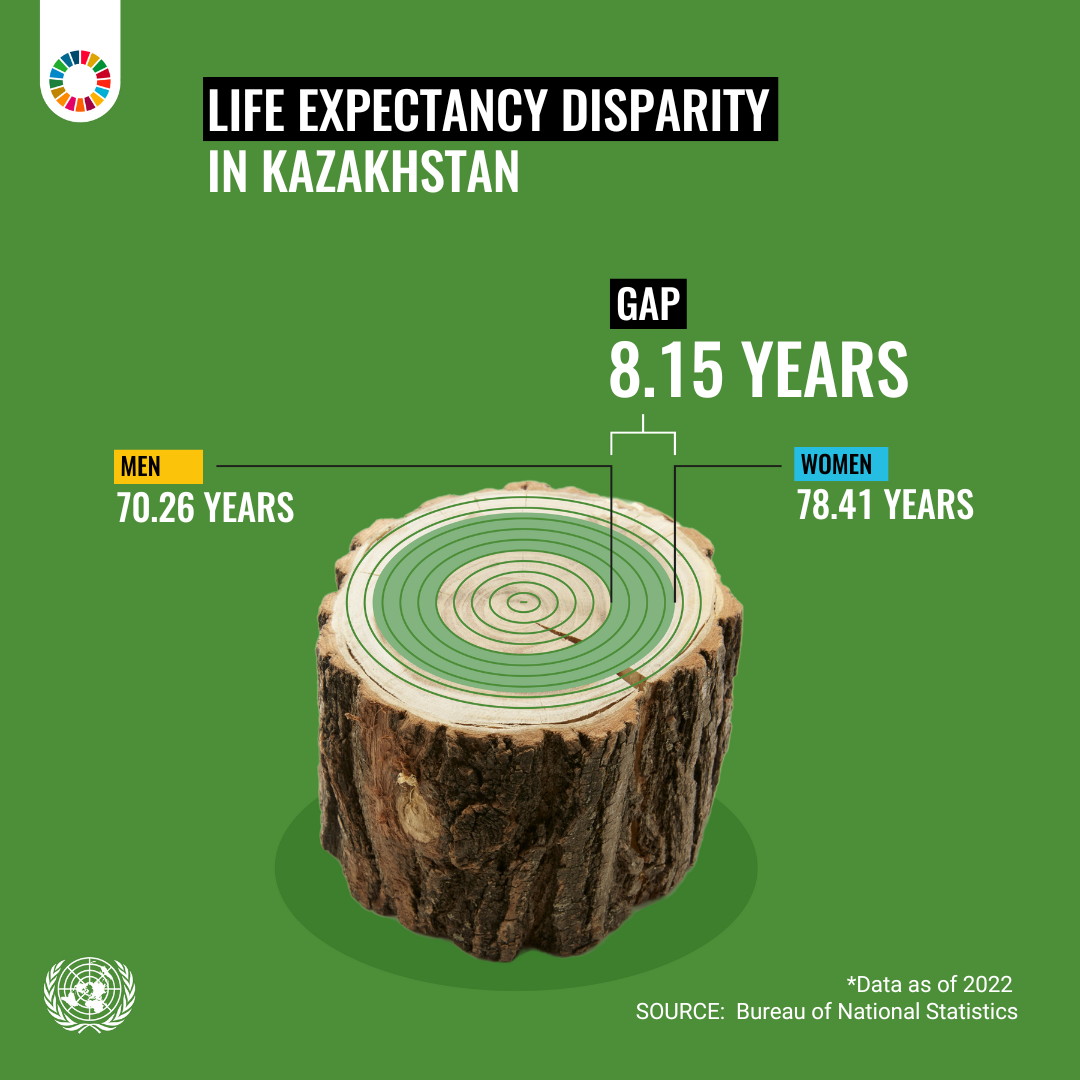
Speaking at the event, Deputy Chairman of the Economic Research Institute, Adil Kusmanov, highlighted positive economic trends, including an acceleration in economic growth to 4.8% and a 35.7% increase in GDP per capita since 2019.
He also outlined measures to boost social protection, such as increased targeted social assistance, extended childcare payments, and construction of schools.
While the government has integrated SDGs into national policies at the country level, similar work is still to be done at the regional level.
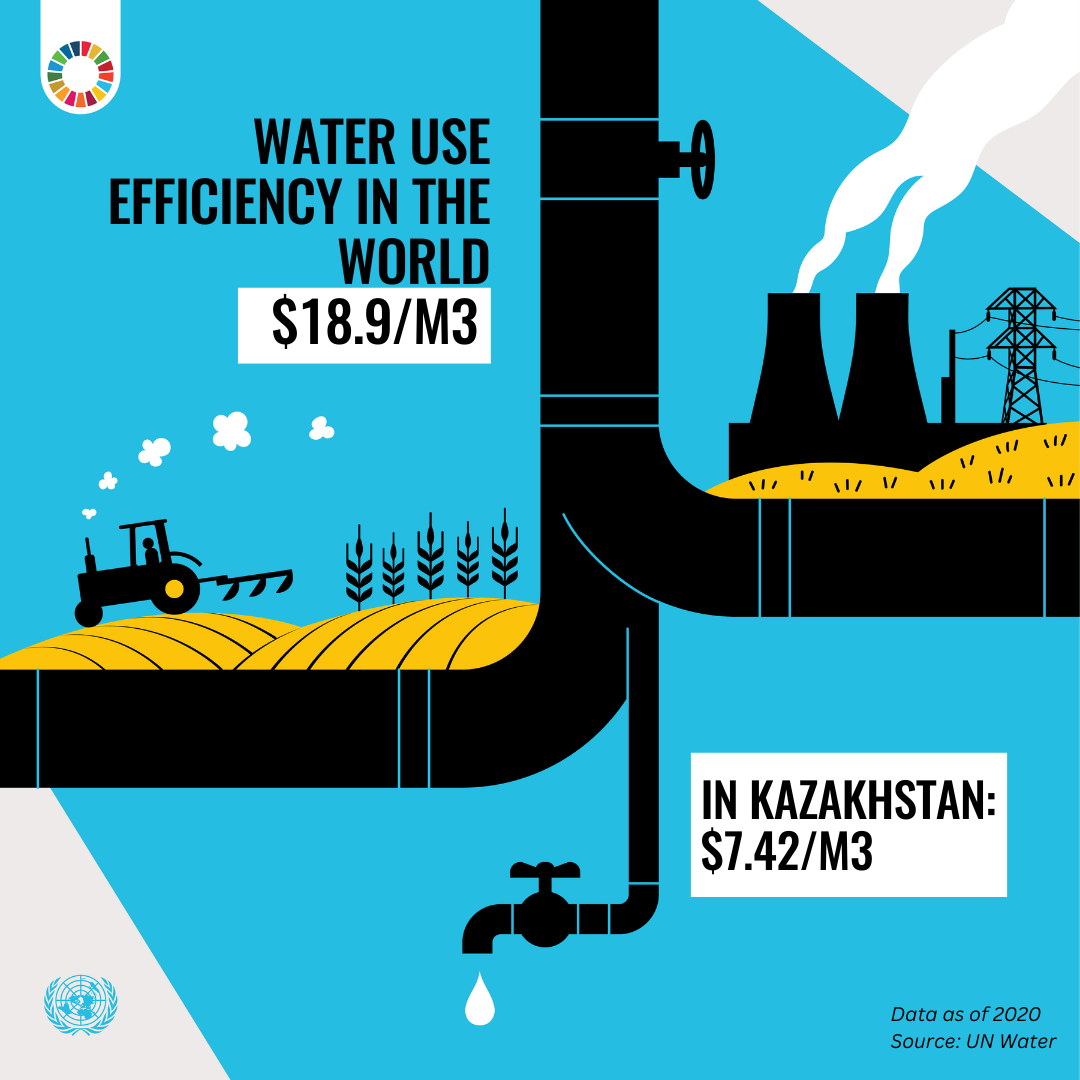
The institute has undertaken an initiative in partnership with the United Nations Development Programme (UNDP) to localize the implementation of the SDGs in pilot regions – Abai, Kyzylorda, Ulytau and Zhetisu.
“For example, in some regions, people do not know about what SDGs are,” Kusmanov told The Astana Times.
On the regional level, the level of implementation of SDGs is still low, he noted, ranging between 30% to 40%.
“We are now providing our regions with the appropriate methodology to assess which SDG indicators need to be implemented in their regional plans,” he added.
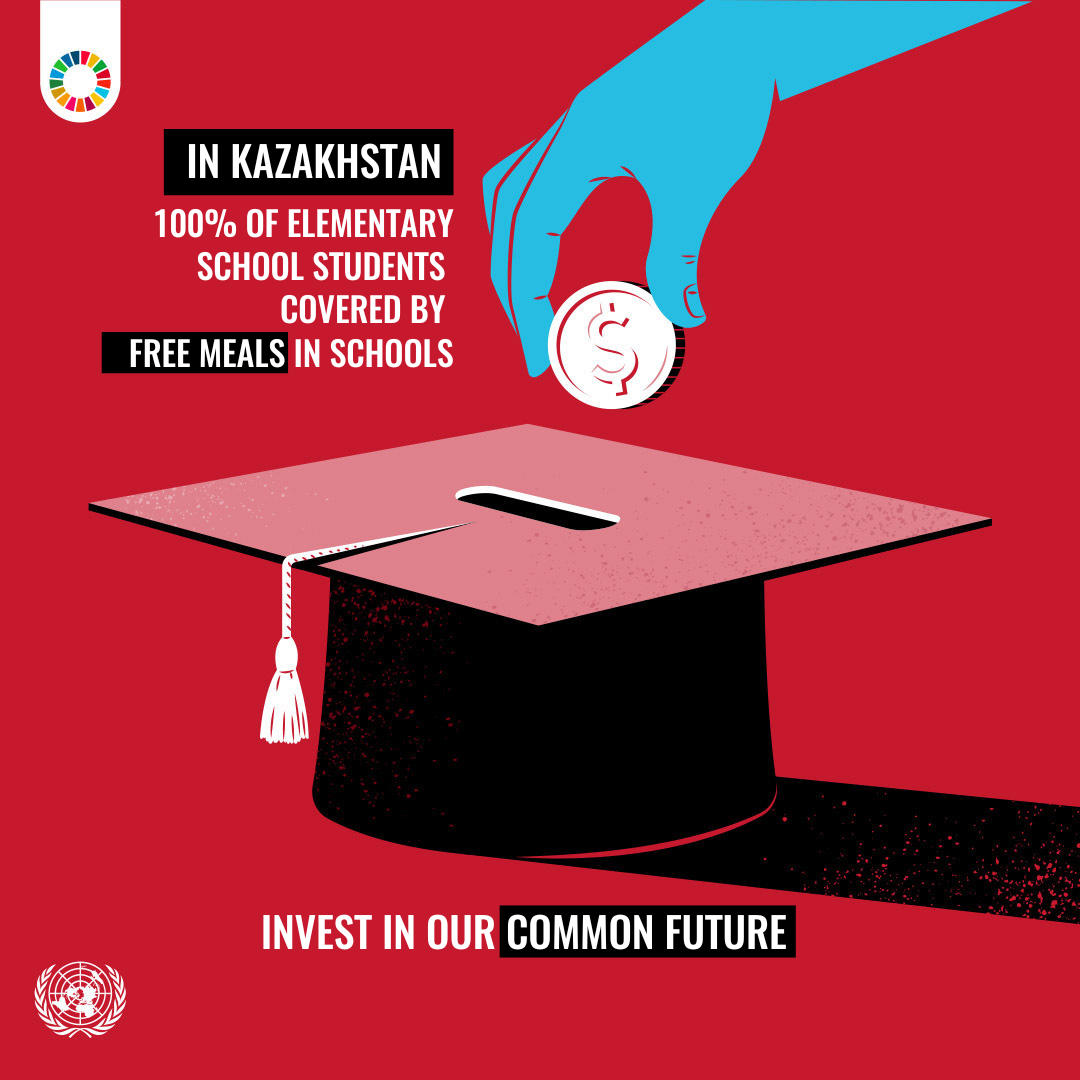
The progress of the project’s implementation will be submitted to the Coordinating Council on SDGs, chaired by Prime Minister Alikhan Smailov, in December.
When asked to what extent government initiatives align with the SDGs, Kusmanov cited the country’s commitment to achieving carbon neutrality by 2060.
“During the state-of-the-nation address, the head of state mentioned the issue of carbon neutrality. Kazakhstan has committed to achieving this goal by 2060. Starting next year, to the best of my knowledge, we will develop a roadmap for this strategy, as a strategy is only successful when it is well-designed and effectively implemented. I believe this implementation roadmap will provide significant support for this initiative,” said Kusmanov.
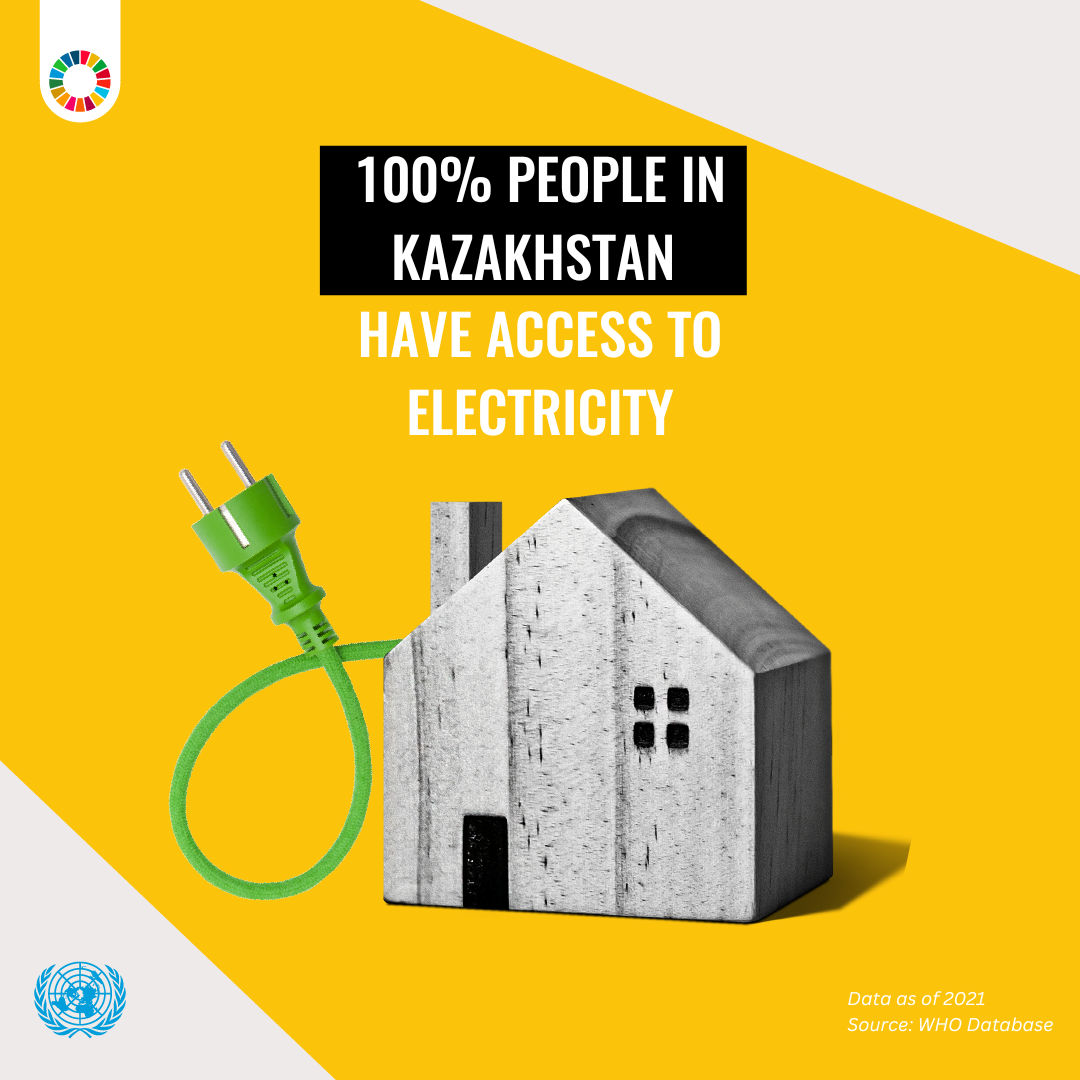
He also underscored the importance of addressing platform employment, voiced by President Tokayev in the address. This, in turn, directly links to SDG eight – decent work and economic growth.
Platform employment refers to a form of employment that uses an online platform for individuals to provide services in exchange for payment, but without formal contracts that guarantee social protection.
“Currently, about 500,000 people are engaged in platform employment, including as taxi drivers and couriers. Unfortunately, their social, pension, and other rights are not fully secured. The President has directed that this issue be comprehensively resolved, mandating a system that includes social contributions, pension contributions, and health insurance. I believe this initiative aligns well with the SDGs, as it adheres to the principle of leaving no one behind,” he explained.
